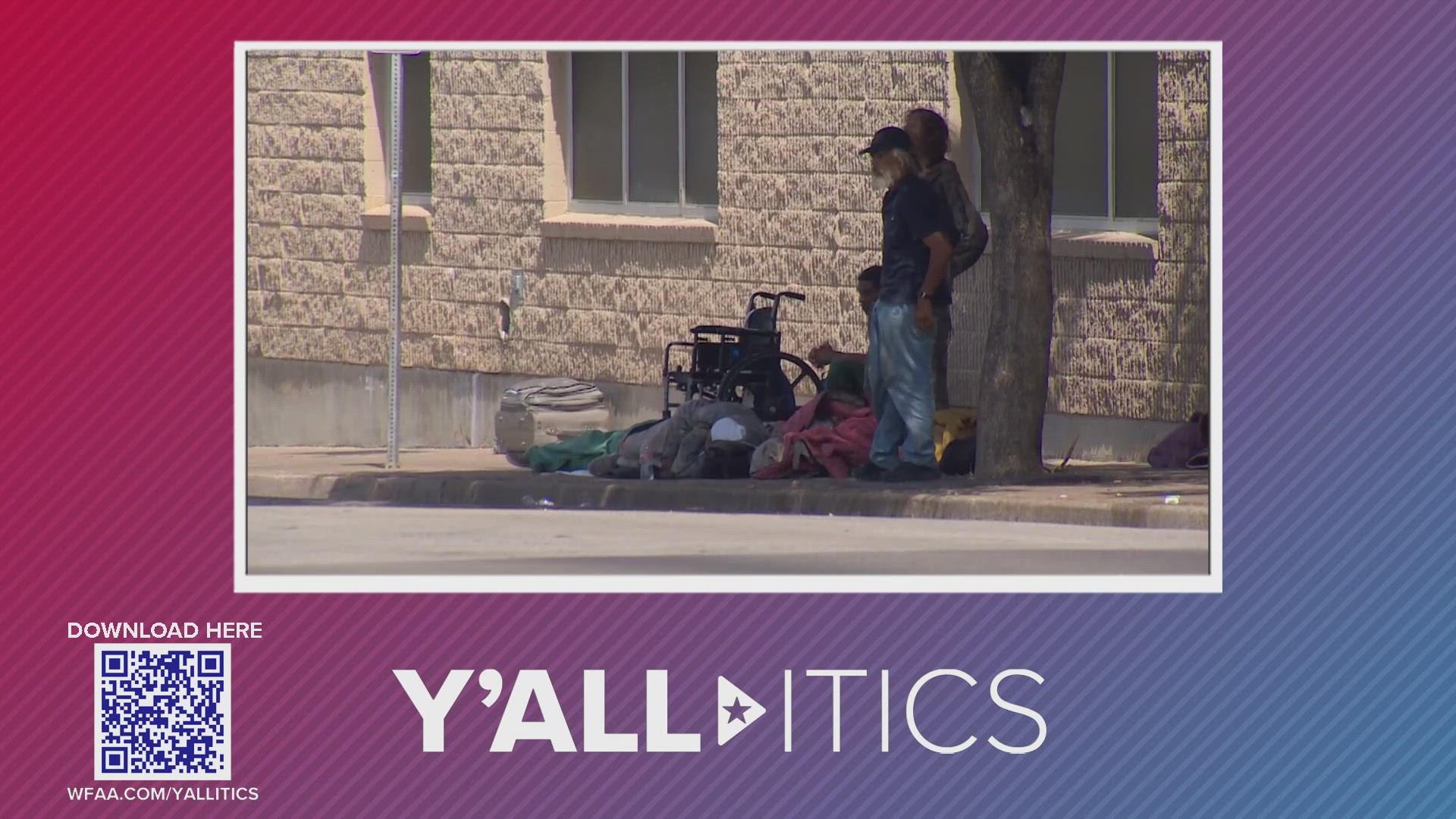DALLAS — You may not have noticed, but the Houston area has been quietly, and quite successfully, addressing its homelessness problem for years now.
Since 2011, more than 30,000 people experiencing homelessness in the Houston area have found permanent housing.
And that doesn’t mean just handing somebody a home.
"It is taking a person who’s experiencing homelessness, and giving them an apartment of their choice with a lock and key, an air conditioner, the heating and cooking area -- a real place that they can stay in long after they overcome the trauma of homelessness," Mike Nichols explained to us on Y’all-itics.
Nichols is the President and CEO of the Coalition for the Homeless, the lead agency tackling the homelessness problem in the Houston area.
Their mantra is simple: Housing first.
The organization focuses on that before anything else -- and Nichols says that’s a big deal, because so many people want to build shelters instead, or place this population in temporary housing, such as a hotel.
But he also says that’s a quick way to waste millions, if not billions, of dollars. And that's how his organization decided it would house the most vulnerable people first -- not the most sober people, or the people who might be the most successful, but those folks likely to die on the streets.
"And the reason is a pragmatic reason," he said. "It costs between $40,000 and $60,000 to your taxpayers -- my taxpayers in Harris County, yours in Dallas -- to keep somebody on the street, where they can be housed using almost all federal money for about $20,000 a year."
Another secret to the success is organizational. In many cities, the lead agency dealing with homelessness is a city agency, so it’s knee deep, and often stuck, in the politics. But, in Houston, Coalition for the Homeless leads the way.
"As an independent entity, we can stay above the politics," Nichols said. "We can get the county and the city to work together. We can get philanthropy to fill in the gaps where federal money fails. So, that’s the organizational piece. We get the more than 100 nonprofits who work on homelessness working together and not stepping on each other’s toes."
The last piece of their successful formula is scale. On the night of our conversation, the coalition was housing 9,000 people. But Nichols stresses scale also means not having to be perfect. They’ll never reach 100% of folks surviving on the streets -- but 85% will do just fine.
"That’s a big number and that’s good enough," Nichols said. "It doesn’t have to be 100%. 15% of the people have significant problems that they don’t succeed. When we decommission an encampment, we go in, and again, 85% of the people say absolutely, yes, we are coming with you to housing. 15% of the people say no."
The formula has been so successful, cities from the across the U.S. are starting to take notice.
Nichols tells us his team has had visits from the mayors of Los Angeles, Chicago, Denver, Seattle and Spokane. City leaders in Anchorage, meanwhile, are actually paying to fly a team from the coalition out to the largest city in Alaska and offer a consultation.
"We looked at the data and the data was clear," Nichols said. "Again, you put people in housing [and] even the most vulnerable, 85% will be successful. There are people who want to argue this. And it’s sadly become a political issue -- the people in the legislature who want to say 'housing first' is a failure. And we say, look at the numbers. Y'know, give me your data. Our data shows that putting people in housing is successful.

